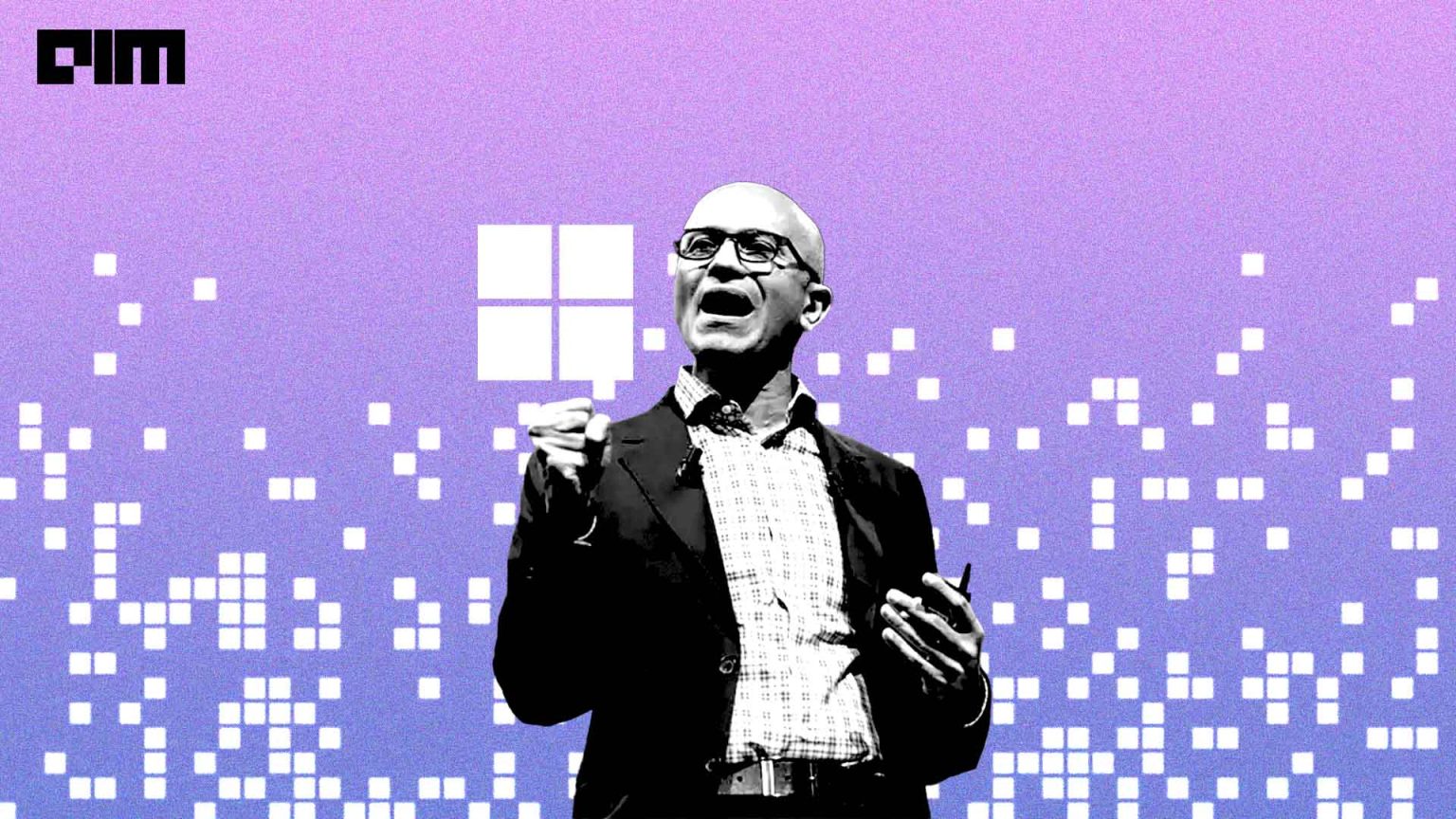|
Listen to this story
|
“Linux is a cancer that attaches itself in an intellectual property sense to everything it touches” – Former Microsoft CEO Steve Ballmer’s 2001 quote remains one of the most infamous ones in tech. The tirade, targeted at the operating system, was against the open-source community as a whole.
For years, Microsoft’s focus had been protecting its intellectual property and proprietary software, which is the foundation of its business model. The tech giant remained opposed to the open-source community for many years. And it was not until 2017 that the company joined the open-source initiative.
( Steve Ballmer, Source: Wikipedia)
Microsoft’s Contribution to Open-Source
Bill Gates, who co-founded Microsoft, as well as his successor Ballmer, remained staunch critics of open-source throughout their span as CEOs of the company. However, during Ballmer’s time, the open-source movement became too big for Microsoft to ignore, pushing the tech giant to experiment with it.
In 2004, Microsoft released Windows Installer XML, which was the first software to be made available by Microsoft under a public licence. Four years later, Microsoft co-founded the Open Web Foundation along with other tech giants such as Google, Meta (Facebook back then), and IBM among others. During the same year, Microsoft officially joined the Apache Software Foundation.
In 2009, it began contributing to the Linux community for the first time. By 2011, Microsoft established itself as the fifth-largest contributor to the Linux kernel, contributing nearly 4% of the changes made.
However, the biggest shift in Microsoft’s stance towards open-source was observed in 2014, after Satya Nadella stepped in as the CEO of the company. Speaking at an event in San Francisco in 2014, Nadella displayed a slide that read ‘Microsoft loves Linux’. The message was that Microsoft no longer saw Linux as a competitor but as an ally.
( Source: Softpedia)
Again, four years later, Microsoft bought GitHub-the largest open source code sharing and collaboration platform, for USD 7.5 billion. It was under Nadella that Microsoft became one of the largest contributors to open-source projects in the world. Today, Microsoft has the highest number of employees contributing to open source projects on GitHub compared to any other company globally. Microsoft recently celebrated ‘Azure Open Source Day’.
(Source: https://mspoweruser.com/)
A darker side to the tale
However, despite Microsoft’s change in stance towards open source, some individuals remained unconvinced. Microsoft is a corporation after all, and there were arguments made that Microsoft started embracing open source for financial reasons. “At the same moment that Nadella was exulting in Microsoft’s newfound love for open source, other parts of the company were actively fighting against it and the principles that underpin it,” Simon Phipps, Columnist at InfoWorld, wrote at that time.
Ballmer even admitted at a later point in time that Microsoft made a lot of money fighting the battle against the open-tech community. “It’s been incredibly important to the company’s revenue stream,” he said.
Similar accusations were made when Microsoft bought GitHub. This could be because despite Microsoft’s efforts to improve its image, the company continues to have a negative reputation among certain members of the developer community. Further, recent developments such as the class action lawsuit filed by Matthew Butterick, a programmer, challenging the legality of GitHub Copilot and a related product, OpenAI Codex, which powers Copilot, raises the moot question – Was there a self-serving reason for Microsoft embracing open source?
The lawsuit
Butterick, who is also a lawyer, has claimed USD 9 billion in damages from Microsoft, GitHub, and OpenAI (a company, which Microsoft has invested in). The lawsuit, which Butterick claims purportedly represents thousands of developers, accuses Microsoft of training Copilot using code sourced from GitHub repositories without adhering to the terms of open-source licensing. The lawsuit also claims Copilot unlawfully reproduces their code.
“We contend that the defendants have violated the legal rights of a vast number of creators who posted code or other work under certain open-source licences on GitHub,” Butterick said. He adds that there are a set of around 11 popular open-source licences such as the MIT licence, the GPL, and the Apache licence, which makes attribution of the author’s name and copyright mandatory.
Surprisingly, even though GitHub is the most widely used platform to host open-source software development projects, the website and the software are still not open-source.
Read more: GitHub Copilot: The Latest in the List of AI Generative Models Facing Copyright Allegations










































































